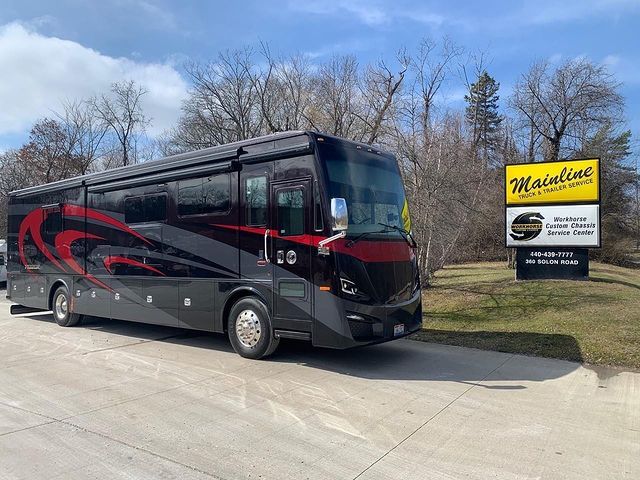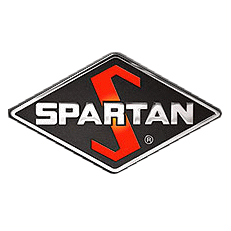5 Helpful Strategies to Improve Fleet Uptime
Every minute a truck in your fleet spends off the road represents lost revenue and potential customer dissatisfaction. That’s why it’s important for fleet managers to use the right strategies to maximize vehicle uptime and keep operations running smoothly.
In this blog,
Mainline Truck explores five key strategies that can improve fleet uptime and ensure your vehicles spend more time on the road and less time in the shop.
1. Use Cutting-Edge Fleet Management Technology
Using advanced
fleet management technology is no longer optional—it's essential. Modern GPS tracking systems, telematics devices, and diagnostic software provide real-time information on vehicle performance and driver behavior.
These tools allow fleet managers to:
- Monitor vehicle health
- Identify issues before they become major problems
- Optimize routes for improved fuel efficiency
- Track driver performance metrics
2. Implement a Robust Preventative Maintenance Program
One of the most effective ways to improve fleet uptime is by using a proactive attitude to maintenance. Regular,
scheduled maintenance can prevent small issues from developing into major breakdowns. A good preventative maintenance program should include routine oil changes, fluid checks, tire rotations, brake system evaluations, and engine tune-ups. Fleet managers can reduce the chances of breakdowns and extend the lifespan of their vehicles by adhering to manufacturer-recommended maintenance schedules.
3. Prioritize Driver Training and Continuous Education
Well-trained drivers are the basis of any successful fleet operation. Implementing a driver training program can have a major impact on fleet uptime. Key aspects of driver training should include:
- Proper vehicle operation techniques
- Safety protocols and best practices
- Efficient route planning and navigation
- Basic vehicle maintenance and inspection procedures
It’s a good idea to implement regular retraining sessions that can help drivers stay updated on new technologies, regulations, and industry best practices.
4. Develop Fuel Efficiency Strategies
While fuel efficiency might not seem directly related to uptime, it plays an important role in fleet performance. Implementing fuel-efficient practices can reduce wear and tear on vehicles and decrease how often you need repairs and maintenance. Consider these strategies:
- Limit vehicle idling time
- Utilize route optimization software to reduce unnecessary mileage
- Encourage smooth driving techniques (gradual acceleration and braking)
- Explore alternative fuel options, such as hybrid or electric vehicles for suitable routes
5. Establish a Vehicle Health Monitoring System
Regular monitoring of vehicle health is important for maintaining high fleet uptime. Implement a system that tracks key performance indicators for each vehicle. This could include tire pressure and wear, brake system performance, engine diagnostics, and fluid levels, such as oil, coolant, and transmission fluid.
Get Professional Fleet Management with Mainline Truck Today!
At Mainline Truck, we understand the challenges fleet managers face in keeping their vehicles on the road and operations running smoothly. Our team of experienced professionals offers comprehensive fleet management solutions tailored to your specific needs.
Contact Mainline Truck today to learn more about our professional fleet management services and how we can keep your vehicles running at peak performance.




















